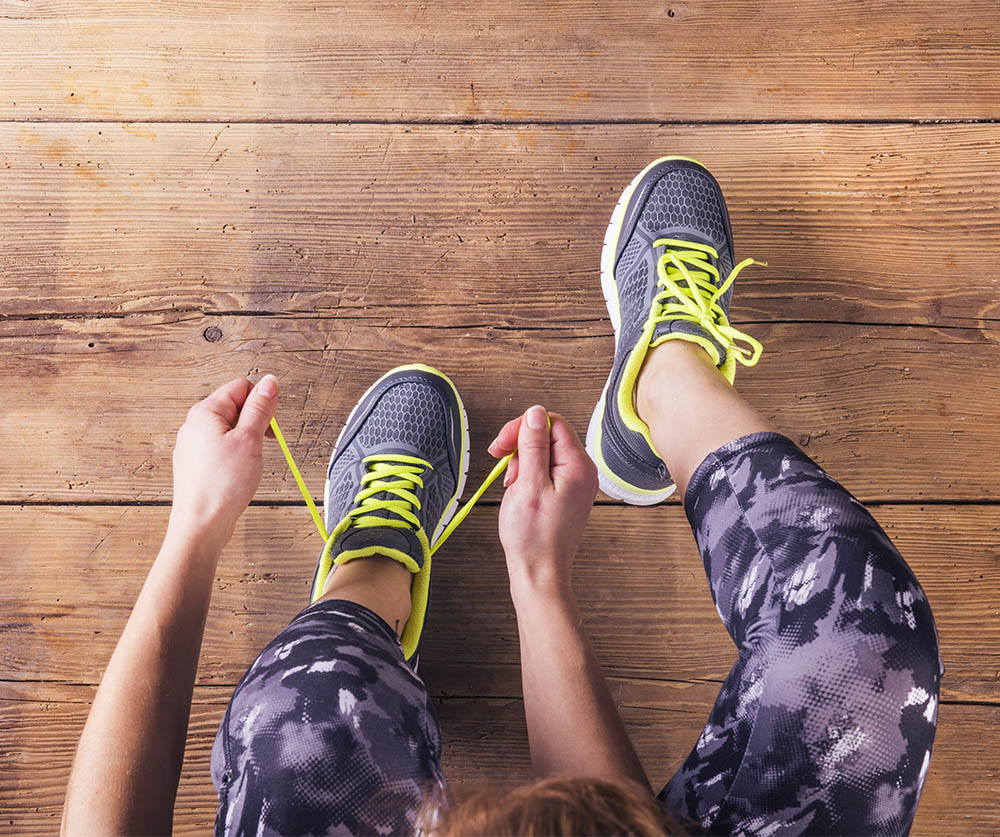

Training Advice
Everything you eat and drink can have an affect on your body when you exercise.
It doesn’t matter whether you’re a professional athlete or just someone who likes to exercise as part of a balanced approach to life. Everything you eat and drink can have an affect on your body when you exercise.
How food influences your exercise
Yes, we all know a balanced diet is important. But when you work out, what you eat every day is not only important, what you eat before and after is also important to how well you’ll train.
What you eat every day
Your everyday diet can impact on how well you train and how much you get out of it. Aim to eat high quality foods, with the appropriate balance of carbohydrates, protein (soy protein is a complete protein), healthy fats and adequate amounts of vitamins and minerals.
What you eat before exercising
The body only burns food that has already been digested and absorbed. So eating just before you exercise is not going to help you burn more energy, however it will help with providing your body with enough fuel to perform at your best.
Foods high in fibre, fat or protein can sometimes take a little longer to digest so don’t eat these immediately before exercising. Ideally a meal with carbohydrates and some protein should be eaten around 3-4 hours before you exercise, or something light, like a banana, can be eaten an hour or two before exercising. However everyone is different, and you should do what suits you best.
3-4 hours before exercise
Baked beans on toast
Ham and salad roll and a banana or low fat yoghurt
Pasta with lean meat, chicken, lentils and vegetables
Baked potato with reduced-fat cheese and coleslaw
1-2 hours before exercise
Fruit
Low fat yoghurt
Low fat chocolate milk
Cereal bar
Bowl of cereal and skim milk
Eating during exercise
If you work-out for 1.5 hours or less, you shouldn’t need to eat while exercising, if your diet is good and you eat at the right time before exercising. If your energy does drop while you’re training it may be a number of things. Perhaps you haven’t eaten enough carbs to fuel your body, you’ve eaten too much or too close to your workout, you’re dehydrated (always keep water with you when exercising) or your diet is not balanced.
If you do endurance training, over 1.5 hours, you may need to eat some fast-acting carbohydrates, like a sports drink or bar, while exercising.
Eating after exercise
How you feel your next workout can have a lot to do with how well you recovered from your last workout. For a start, don’t go eating all those extra foods as a reward for all your hard work you won’t thank yourself afterwards!
Ideally, you should have something with carbohydrates and protein within 30 minutes after exercising. The carbs can replenish your glycogen levels and the protein can help maintain and repair the muscles you used during your workout.
Of course, you will need to get fluids into you, preferably water. Most people will be a little dehydrated after a workout and will continue to lose fluid through perspiration and breathing. Keep a water bottle with you and drink a good amount immediately after you finish to help you recover faster, and ensure you feel good for the rest of the day.
If your urine is dark after working out, this might mean you haven’t drunk enough water to help maintain your hydration. Make sure you always follow up plenty of fluids after exercise.
Meal ideas to eat within two hours of exercising are:
Lean meat, chicken or fish with potato and vegetables
Seafood or chicken risotto or pasta with side salad
Stir-fry of lean red meat or chicken and vegetables with rice
Homemade pizzas with lean meat, reduced-fat cheese and vegetables
Exercising to build muscle
A well-structured strength training program and a nutrient-rich diet with sufficient protein can help build and maintain muscle. You might need to eat a little more, but this means more low fat foods, protein with each meal and some carbohydrates before and after each workout. You do need some carbohydrate to supply your body with energy, so it helps to preserve your protein stores for muscle growth and repair. And throw away the high-fat junk food.
Sporting kids
How do you know if your kids are getting a healthy, balanced diet of carbohydrates, protein, fats, vitamins and minerals? They’ll be able to play sport for longer, and concentrate and recover well. But if they struggle to concentrate and are lethargic all the time, they’re not getting the nutrients they need.
Kids tend to overheat faster than adults, so it’s important to keep their fluids up before, during and after sport. If your child has a big day of sport on, an athletics meet perhaps, keep them supplied with fruit and carbohydrates every couple of hours. A jam sandwich, watermelon, oranges and muesli bars are good, and sports drinks or cordials. If your child is just out for a half-hour game, avoid the sports drinks.
Help young bodies top-up by feeding them spaghetti bolognese or a ham and cheese toasted sandwich within a few hours of their game.
Who really needs sports drinks
Unless you’re working-out at high intensity for more than 1.5 hours, you should stick with water. This includes working-out at moderate intensity or playing a social game of tennis.
Sports drinks were originally designed for athletes and provide carbohydrates and electrolytes to help with re-hydration. Choose one of these over water when you’re not working at high intensity and you’re adding unnecessary kilojoules into your diet.
For useful information on sports and nutrition, visit “Sports Dietitians website” and “Australian Institute of Sport” www.ausport.gov.au/ais/nutrition.


Leave a Reply
You must be logged in to post a comment.